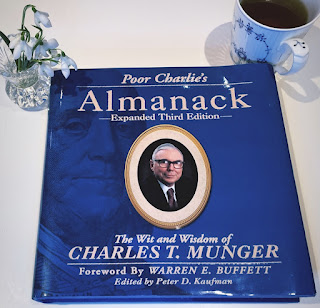Are Share Buybacks Good for Investors or Not?
If you’ve been following news about the stock market you might have seen headlines about “stock buy-backs” or “stock repurchase plans”. In this article I’ll describe what it is, how it benefits investors, and what we as investors should watch out for.
Buy backs means that companies buy back their own stock. Why would companies buy their own shares? and what do they do with those shares? might be some of the questions that pops up for you and I’ll answer these questions below. Examples of companies that buy back shares are Apple, Alphabet (Google), Facebook, Oracle, Microsoft, Berkshire Hathaway, and many more.
Why would companies buy their own shares?
There are several reasons why companies would buy back their own shares.
Good Examples:
The company has an extraordinarily large amount of cash and even after investing in growth initiatives and potentially paying dividends, there’s cash left to buy back shares.
Further, the stock price is very cheap, compared the company’s real value. With their shareholders in mind, the company use the cash to purchase the shares back at a discounted share price. Once the stocks are bought back, the business “retires” the stocks, meaning the stocks aren’t put for sale in the marketplace later. This way the shareholders get a bigger piece of the pie because the overall number of shares are reduced. This example is where great management allocate capital in a rational way.
Charlie Munger is not as well-known as Warren Buffett. He is Warren Buffett’s wingman – the co-chairman of Buffett’s company Berkshire Hathaway and he’s also the father of modern value investing: buying wonderful businesses at a fair price (instead of buying fair companies at a wonderful price).
One of the type businesses that Charlie Munger advises to buy is “cannibal” companies. Companies that are eating themselves by taking excess free cash and buying their own stock (at a reasonable price).
Bad Examples:
The management has a short-term financial view and want their financial statement to look better by buying back shares. This move inflates the EPS – earnings per share and the lowers PE Ratio – price-earnings ratio (so some investors are led to believe that the stock is trading at a fair price). When the company buys back shares, the number of outstanding shares available in the market decreases and since EPS is calculated by dividing the company’s earnings by the shares outstanding and the shares outstanding are now lower - the EPS looks better on the surface.
Management shows poor capital allocation skills when they buy back their shares when the price of the company shares is overvalued. The stock price is overvalued when the price of the stock is higher than the company’s value. In my investing course I teach you how to calculate the company’s value per share.
To make this example relatable: If Taylor went out and bought a new smartphone at $150 a higher value than the retail price of $100, their action and how they spent their money would not be considered smart.
Another short-term move is when companies buy back shares instead of investing in growth initiatives (like research and development of new products or equipment) because repurchase of shares will look good in the financial statement short term - and growth initiatives often have a longer lead time to appear in the earnings result.
What do companies do with repurchased shares?
With all these examples if the grand finale is that the company releases the shares into the marketplace again at a later time, instead of retiring the stocks, the move would not be considered shareholder friendly.
Where does the money for repurchasing shares come from?
Hopefully your wonderful business buys back shares with excess cash. Their free cash flow.
But this is also where you as an investor must pay attention because you might think that shares are bought back with excess cash, but you cannot be certain of that.
Some companies might take on debt to buy back shares. Read that again!
Why would management do that? It can be difficult to comprehend why management would take on debt to buy back shares, but the reason is likely to inflate the EPS or the PE as many stock traders and speculators are looking at these numbers but might not see the full picture.
That’s where you as a value investor have an advantage because you can concentrate your efforts on a few businesses and read everything there is to know about them. If you can see that the business is buying shares by taking on debt, it’s not a wonderful business and you don’t have to invest in that company and risk losing your hard earning money.
At the time of publishing this article the author does not own shares in any of the businesses mentioned in this article.






Comments
Post a Comment